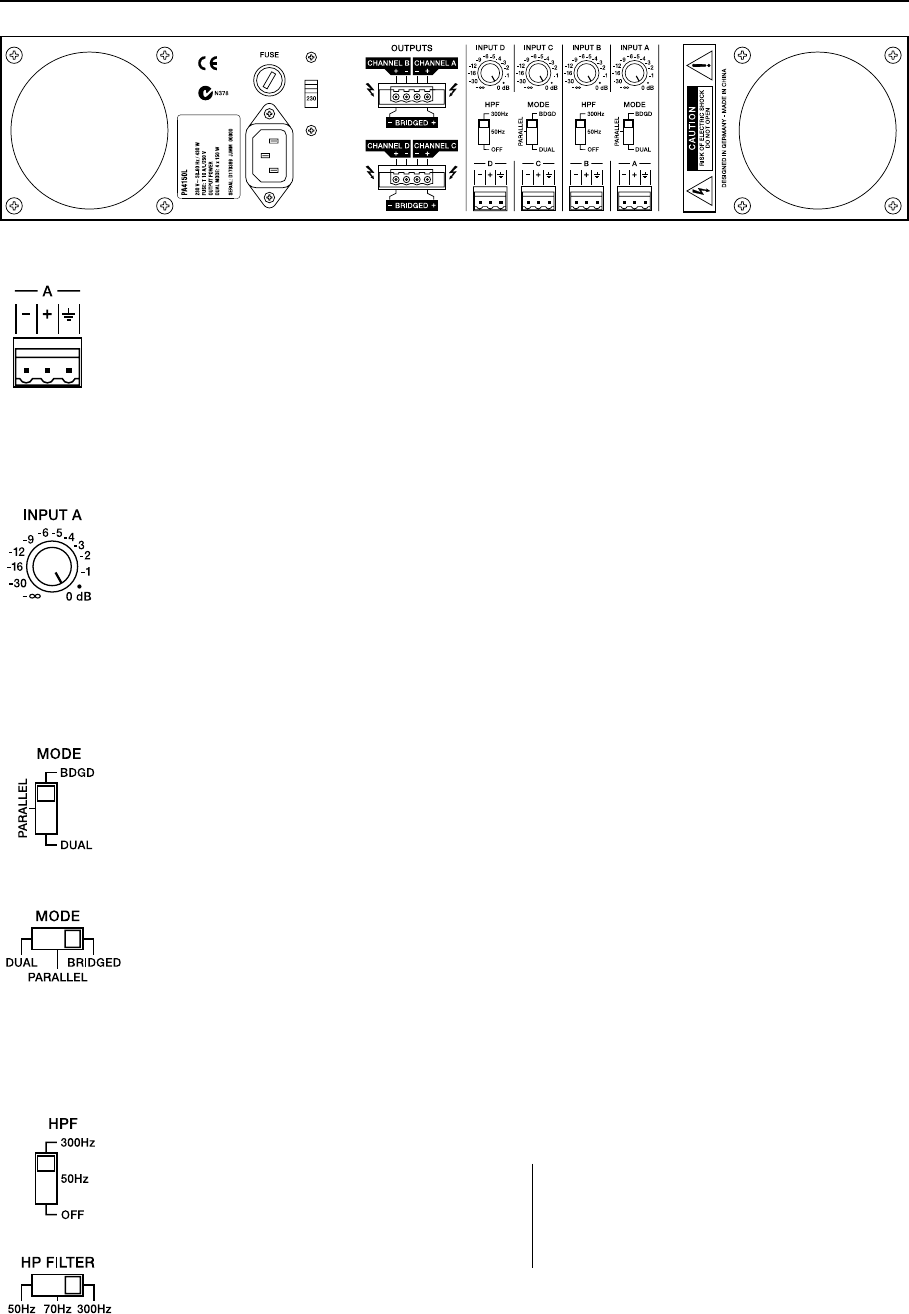
REAR PANEL
Audio Signal Inputs
The electronically balanced inputs facilitate the connection of external signal sources
(e.g. mixing consoles). When screwed to the power amp, the screwlock connectors
provided with the unit prevent accidental disconnection.
Choosing balanced cables (2 conductors for audio signals + separate shielding mesh)
for LF-signal connection is generally recommended, even when the connected signal
source does not provide balanced output signals. This is possible by jointly connecting
“–” conductor and shield on the source side (also refer to “LF-Connection Cords).
Level Controls
The Level Controls allow setting the according power amp channel’s overall
amplication. To prevent distortion in mixing consoles connected to the amp, setting
these controls to a value between -6dB and 0dB is generally recommended. A scale
provides direct indication of the varying additional control attenuation applied to the xed
internal amplication.
Mode Switch
The Mode Switch allows selecting the power amp’s mode of operation. With the four-
channel model it is possible to independently select channels A and B or C and D.
The single-channel model comes without mode switch.
DUAL: The power amp channels work independently from each other, each re-
producing the audio signals fed to the corresponding input.
PARALLEL: Both channels reproduce the audio signal fed to input A (or C). However,
using the level controls allows individually setting the channel volumes.
BDGD: Audio signals need to be fed to channel A (or C) when in Bridged Mode.
Power amps A and B (or C and D) now work in push-pull operation
delivering doubled output voltage. Please keep in mind to correctly
connect the loudspeaker systems for Bridged Mode operation. (also refer
to “Loudspeaker Outputs”)
High Pass Filter (HPF)
The Hi-Pass lter allows effective attenuation of low bass audio signals. You can choose
from three cut-off frequency settings:
Power Amps with low impedance outputs Power Amps with output transformer
300Hz, 12dB/Oct., BW 300Hz, 12dB/Oct., BW
50Hz, 12dB/Oct., BW 70Hz, 12dB/Oct., BW
OFF (no Hi-Pass lter) 50Hz, 18dB/Oct., BW
As a basic principle, all models with output transformer have a 50Hz Hi-Pass lter in the
audio signal path to protect the transformer from being driven into saturation by high
level low-frequency signals.
6


















